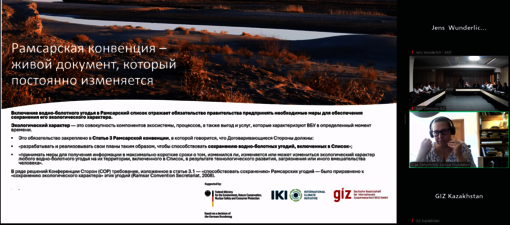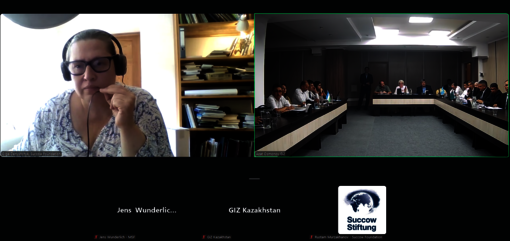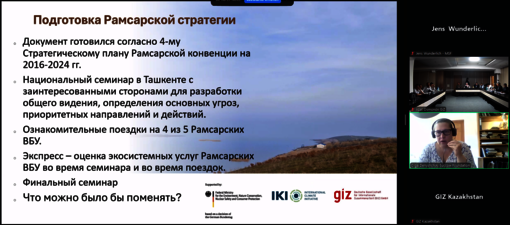On September 9, 2025, the shores of Lake Issyk-Kul in Kyrgyzstan came alive: representatives of the Ramsar Convention from all five Central Asian countries, international organizations, and experts gathered to discuss the state and future of wetlands in the region. The occasion was a regional workshop on the Ramsar Convention, organized as part of Green Central Asia Phase II, an initiative of the German Federal Foreign Office, implemented by GIZ in cooperation with the Central Asian governments.
Why all this? Wetlands are real multi-talents – they store water, protect against droughts and floods, and provide a home for countless animal and plant species. Migratory birds in particular depend on them. In short, they provide resilience under increasingly volatile environmental conditions caused by climate change, which is particularly drastic in Central Asia. Climate change is putting ever greater pressure on these sensitive ecosystems.
![[Translate to EN:] Banner Stiftung](/fileadmin/_processed_/b/c/csm_banner-stiftung_fee6c1c492.jpg)


